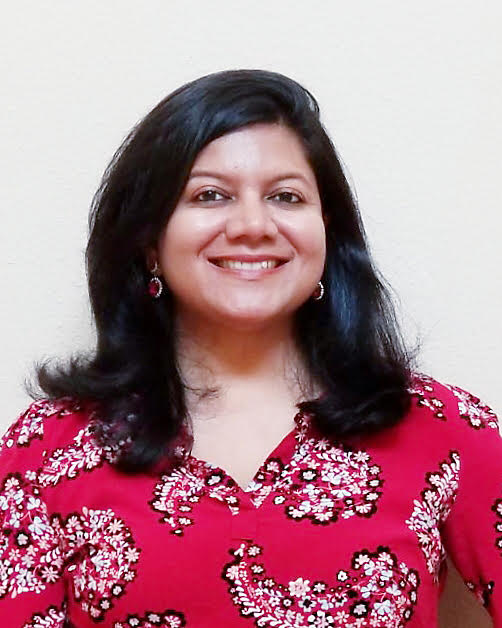Not Politics, Just People
When diverse groups are determined to understand each other and celebrate their common values and similarities, the door to peaceful coexistence becomes wide open.
 Child in war zone / Pexels
Child in war zone / Pexels
When I first heard about the Abraham Accords Declaration, I was quite intrigued. It is not often that you come across formal interfaith peace agreements between Judaism, Islam, and Christianity, three religions that have witnessed a long and painful history of conflicts, war, and bloodshed.
On Sept. 15, 2020, bilateral agreements were signed at the White House, mediated by President Donald Trump, between leaders of Israel and the United Arab Emirates on the Arab-Israeli normalization of relations. The agreements were named “Abraham Accords” to highlight the common belief of Judaism and Islam in the prophet Abraham.
The agreements state:
“We, the undersigned, recognize the importance of maintaining and strengthening peace in the Middle East and around the world based on mutual understanding and coexistence, as well as respect for human dignity and freedom, including religious freedom. We encourage efforts to promote interfaith and intercultural dialogue to advance a culture of peace among the three Abrahamic religions and all humanity.”
What a game changer this can be, I thought, as I read and processed the ambitious goal of the treaty: mutual tolerance and respect through dialogue to advance a culture of peace.
The declaration resulted in the formation of a non-profit and non-governmental organization called Sharaka (meaning ‘partnership’ in Arabic) by people from Israel, Bahrain, and the United Arab Emirates.
When the Hindu American Foundation’s Executive Director was invited to be part of a multi-ethnic coalition and the Sharaka delegation in Israel last year, I was able to learn more about this movement and the efforts to promote peace. And when I received an invitation from the Bay Area Jewish Coalition to attend a Sharaka event in a neighboring city, I readily accepted. I was keen to hear the diverse viewpoints by the visiting leaders who had been touring the country and looked forward to hearing their opinions on the conflict, following the Oct. 7 terrorist attack by Hamas.
The panelists were brilliant, eloquent, witty, and extremely knowledgeable and between the five of them and a great moderator, they made sure everyone was glued to their seats. It was both fascinating and eye-opening for the audience to hear their stories and lived experiences in Israel including some short history lessons for context.
Maryam, the Lebanese Christian panelist, highlighted how inclusive and accepting Israel has been since refugees like her have fully integrated into the Jewish culture while proudly maintaining their Christian identity and roots. The Muslim speakers from Bahrain, Dr. Ahmed, and Fatemah, discussed how welcome, safe, and accepted they felt in Israel, while they had to deal with disapproval and even threats from their own country’s people for simply being a part of Sharaka and traveling to Israel. Noam, who has now devoted his life to promote peace after directly witnessing the horrors on Oct. 7, talked about the deep-rooted radicalization that separates politicized religious ideology from religion. It was chilling to hear examples of how young children at schools in Gaza are taught to hate the Jewish people. In the midst of all of this, everyone, especially the people of Palestine, desperately crave peace not war.
The discussion was a breath of fresh air for someone like me who has been working in the Hindu advocacy space for a few years now, constantly exposed to anti-Hindu bias, hate incidents, and crimes.
It sounded all too familiar when the speakers talked about the propaganda against Israel and false narratives by the media that have led to hatred against the Jews and growing anti-semitism across the globe. It is no surprise to those who are tuned to real news that most of these groups and organizations that are fanatically antisemitic are also usually Hinduphobic.
Besides being the two oldest civilizations in the world that have managed to survive, Jews and Hindus have much more in common. The mere existence of these two religions seems to be a problem for the radical groups that are brutally attacking innocents just because they identify as Jews and Hindus.
The panel discussions and the heartwarming conversations with these accomplished speakers thereafter left me feeling reassured that Sharaka can indeed be a powerful beacon of light in educating the public through people-to-people conversations. We all agreed that college campuses in the U.S. need to host these speakers so that our youth can learn to differentiate between propaganda and truth.
Personally, there were so many takeaways for me that night. I loved hearing this statement from the Moroccan panelist, Youssef, who said, “You need to be politically incorrect if you want results”.
I left with a strong sense of hope that truth will prevail even if it often gets suppressed or denied. When diverse groups are determined to understand each other and celebrate their common values and similarities, the door to peaceful coexistence becomes wide open. Sharaka is on a much-needed powerful mission and their moral courage is definitely inspiring.
The author is Director of Community Outreach at the Hindu American Foundation
(The views and opinions expressed in this article are those of the author and do not necessarily reflect the official policy or position of New India Abroad)
ADVERTISEMENT
ADVERTISEMENT
E Paper
Video

 Ramya Ramakrishnan
Ramya Ramakrishnan

 (1).jpg)


.jpg)

.jpg)
.jpg)
.jpg)
.jpg)

Comments
Start the conversation
Become a member of New India Abroad to start commenting.
Sign Up Now
Already have an account? Login